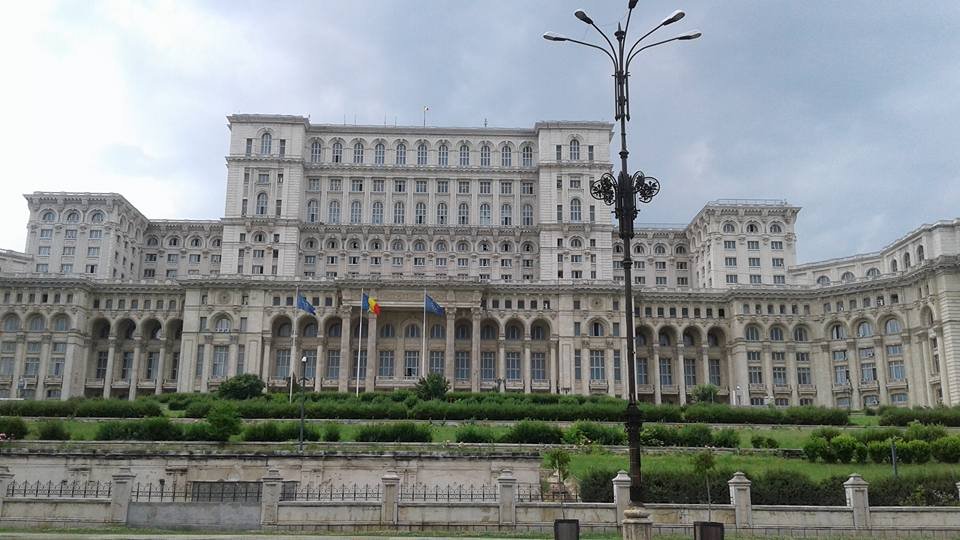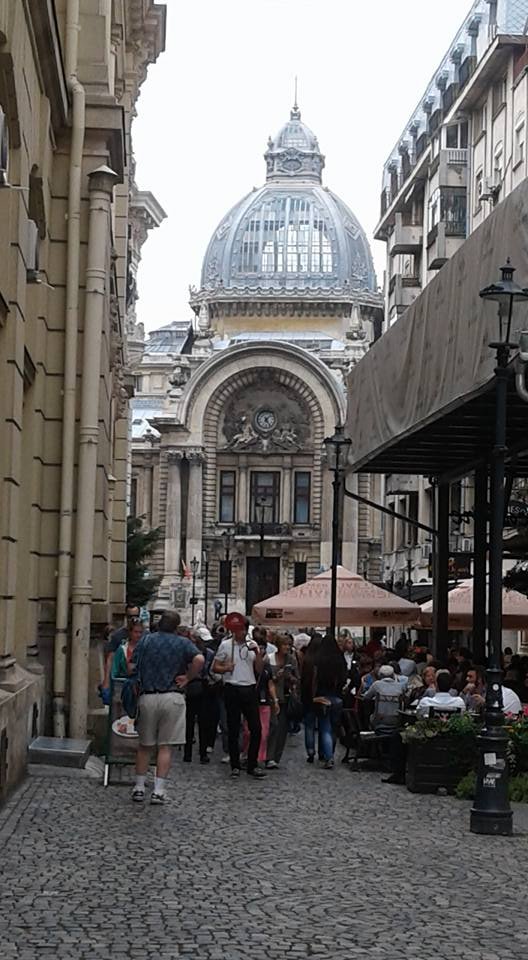
Ceausescu’ s house, called the House of the People
We ended our cruise tour in Bucharest, my first real home away from my home country. I felt a thrill once I stepped off the boat, and as our bus drove past familiar, yet vastly spruced-up sights, I swelled with pride.
Around every corner, I see memories. Good memories that make me laugh. Some that make me sad, missing friends and a world that no longer exists.
I remember how God met me and watched over me in this place. I get goosebumps thinking of how He cut through the iron bars that held people captive and set them free.
However, our tour guide’s commentary made me livid. She is 27 years old, born one year before the revolution. She said, “Ceausescu was good to Romania. He loved his people.”
I sat up and stared. Maybe my mouth dropped open. I’m not sure. I couldn’t believe what I was hearing.
“He was paranoid and so he didn’t let his people speak their minds. So they turned on him and killed him.” With that in-depth history lesson, she moved on to the next topic. Case closed.
When we got off the bus for lunch, I pulled her aside. I wanted to know why she thought that.
I reminded her of the fear and suspicion. Nobody knew who was an informant. Nobody knew who to trust. People were imprisoned, tortured, or killed.
I told her that Ceausescu’s model was North Korea. No heat, no water, empty store shelves, long bread lines. Typewriters were illegal, same as speaking to foreigners.
We’d just toured one of the few remaining parts of Bucharest that show why it used to be called the Paris of the East. The so-called lover of Romania destroyed the beautiful districts and whole villages, all to build ghastly concrete apartment blocks, resettling people to the city. He tried to destroy religion and knowledge of God.

Lipscani district — what all of Bucharest used to look like
She told me she had heard all that, but she wanted to put a positive spin on things so Western tourists would want to come back. I gave her a hint about Western values. I said we love stories, TRUE stories of people who have everything going against them and yet they overcome. They rise from the ashes.
I told her to tell the truth.
When we got back on the bus, she did talk about the economic oppression. That was a start and I thanked her. But it isn’t the whole truth.
It reminded me of the old days in this part of the world. Truth has always been elusive. Communist leaders often withheld negative news, news of their leaders’ deaths or space shuttle crashes. They spread propaganda with only their particular slant and kept people sheltered from any contradictory voices.
I hope the tour guide listens. Because Romanians have achieved so much, against all odds. And that makes me proud.
Thank you for your witness. I never heard one positive thing about Ceausescu nor about Communism. Shocking they’d think anyone would want to hear different. The Unitarian churches continued to meet even though they were all infiltrated by party spies and had to hide their teachings in songs and parables. Many ministers were imprisoned and some lost their lives. I was blessed to meet the elder women who never miss a Sunday’s worship through it all. Their courage, strength, and most of all their faith is beyond anything I’ve seen in the west. I’ve a picture of me w them on my facebook. (All Unitarians are Hungarian and suffered even more under Ceausescu.) Thank u💖
Thanks,Cindy,for affirming this. I agree. I’ve never seen courage or strength or faith anywhere in the West to compare.